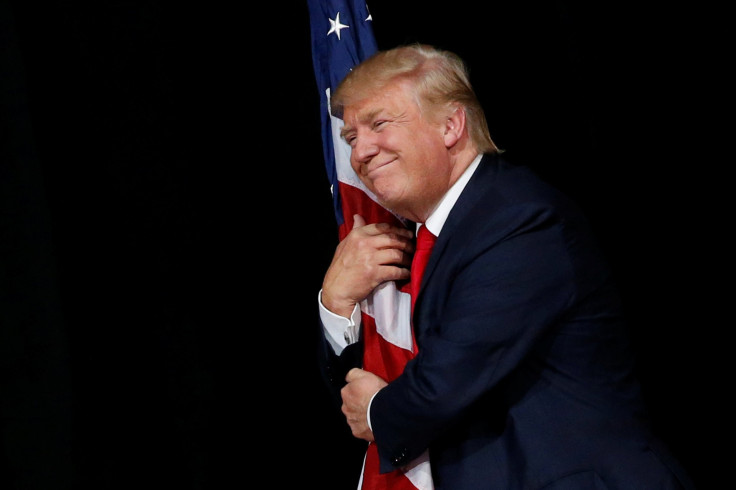Abolish The Electoral College? Trump Says It's Harder To Win, O'Reilly Claims It's 'All About Race'

Despite officially securing an Electoral College victory Monday, President-elect Donald Trump was tweeting early Wednesday morning about how he could have won even more convincingly against former opponent Hillary Clinton in the 2016 presidential election.
"I would have done even better in the election, if that is possible, if the winner was based on popular vote," Trump wrote online Wednesday. "But would campaign differently."
The president-elect went on to claim it’s “much more difficult [and] sophisticated” to win the Electoral College than the popular vote. His tweets follow a polarizing debate over the institution, created in 1787, and whether it should continue to exist as America’s populations skew heavily in urban areas and coastal cities.
Meanwhile, in an effort to make a case for the College, conservative talk show host Bill O’Reilly instead summed up exactly why it was built in the first place: race.
"If the Electoral College were abolished, presidential candidates could simply campaign in the nation’s largest cities, New York, L.A., Chicago, Houston, and rack up enough votes to pretty much win any election," O’Reilly claimed on “The O’Reilly Factor” Tuesday night. "That’s what the left wants, that’s what they want, because in the large urban areas and blue states, minorities are substantial."
Instead of arguing, the GOP should focus its efforts on better connecting with minority communities and urban regions throughout the nation, O’Reilly concluded. The Electoral College should remain in place so Republicans and white working class voters maintain a powerful voice in national politics, he added. "The left sees white privilege in America as an oppressive force that must be done away with," O’Reilly said. "The left wants power taken away from the white establishment and they want a profound change in the way America is run."
Trump, however, maintained he could have won the popular vote handily by simply campaigning in coastal progressive cities. "Hillary focused on the wrong states!" he wrote.
O’Reilly’s argument is, essentially, correct: the Electoral College was designed by slave owners in an effort to maintain slavery in the south. The College wasn’t designed to provide leverage for smaller states throughout the country – instead, the institution was built to give power to southern states in a time of profound ideological differences between them and the north.
A group of "faithless electors" were reportedly planning on potentially reversing the results of the presidential election just before the group of electors convened nationwide on Monday. However, the Electoral College elected Trump as the next president of the United States. Still, the movement created a national conversation about whether the country should transition to a one person, one vote system.
"The Electoral College ends up counting votes unequally depending on where they're cast," Akhil Reed Amar, the Sterling professor of law and political science at Yale University, told Vox. "That is at tension with a modern democratic sensibility of counting all votes equally."
© Copyright IBTimes 2024. All rights reserved.






















